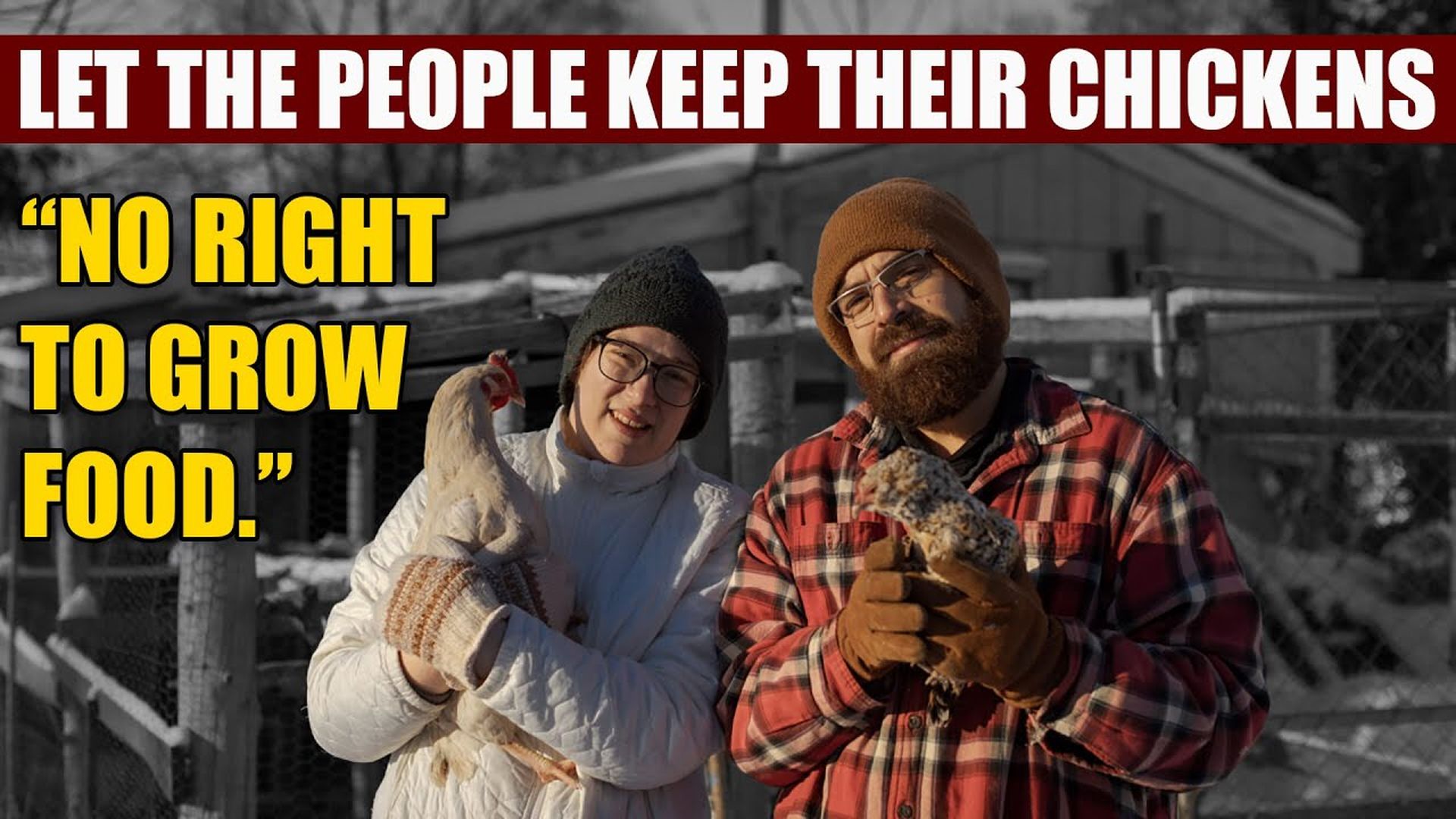
AMT432- LET THE PEOPLE KEEP THEIR CHICKENS! | "You don't have a RIGHT to grow food." | As a Man Thinketh
On paper, Maine is the first state in America where the right to grow and raise your own food is written into the constitution. In practice, a Calais family says they can’t legally keep enough hens on their quarter-acre lot to feed their kids. That c...
Available via subscription or rental
Already purchased? Sign In
Bundle Preview
This content is not available in your region
AMT432- LET THE PEOPLE KEEP THEIR CHICKENS! | "You don't have a RIGHT to grow food." | As a Man Thinketh
On paper, Maine is the first state in America where the right to grow and raise your own food is written into the constitution. In practice, a Calais family says they can’t legally keep enough hens on their quarter-acre lot to feed their kids. That contradiction is now headed to court—and the outcome could ripple across every backyard garden, goat shed, and small urban homestead in the country.
The case in a nutshell
Kamiwan and Paul Oliver keep a small flock for eggs and meat. Calais adopted a 2024 “domesticated livestock” ordinance that, among other constraints, limits coops to ½-acre or larger lots, imposes 20-foot setbacks, and caps flocks at six birds—standards that functionally exclude most in-town lots like the Olivers’ and, they argue, nullify Maine’s constitutional Right to Food. With help from the public-interest law firm Institute for Justice, they’re suing under that amendment. Local outlets confirmed the suit in mid-September 2025 and summarized the ordinance’s practical effect: on typical in-town parcels, compliance is a non-starter.
Why this is a big deal—today
This isn’t a quaint “chicken drama.” It’s a live test—now—of how far a constitutional right reaches when it meets city hall. If Maine’s Right to Food means anything, it should protect self-provisioning at household scale while still allowing reasonable sanitation and nuisance rules. If a court upholds acreage and setback formulas that make backyard hens impossible for most residents, the message to homesteaders is blunt: your “right” exists only where lot sizes and politics are favorable. That outcome wouldn’t just wound Maine’s amendment; it would chill efforts in other states to enshrine similar rights.
What the Right to Food actually says
Adopted by voters in November 2021, Maine’s Article I, §25 recognizes an “unalienable right to food,” including the right to grow, raise, harvest, produce and consume the food of [one’s] own choosing, subject to limits against trespass, poaching, or abuses of property and public resources. That’s not a license to be a bad neighbor; it’s a guarantee that peaceful, at-home food production is a protected liberty interest—unless government can show its rules are truly necessary and narrowly tailored to those legitimate aims.
Join this channel and support our efforts:
Categories: Lifestyle
Starring: Charlie and Shuana Rankin


